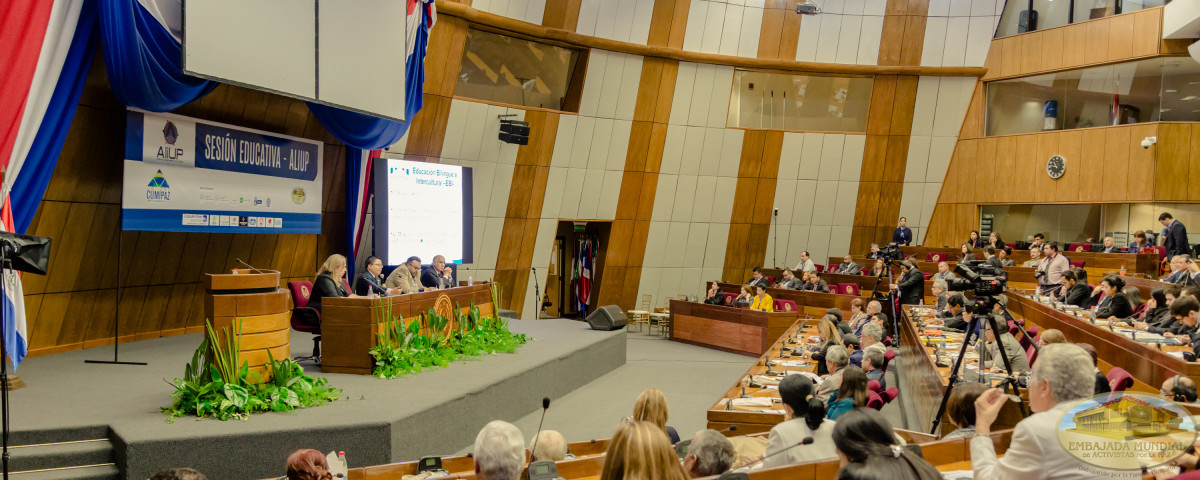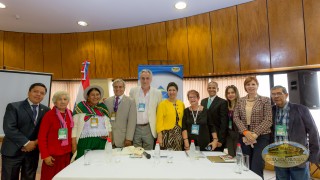CUMIPAZ 2016 proposals: an educational system for peace
An international space of participation was created at the Peace Integration Summit – CUMIPAZ 2016 to analyze the challenges of an educational system that integrates universal principles and values in the formative process to boost a culture of peace.
Legislatures and authorities from Bolivia, Guatemala and Ecuador spoke on the educational policies of their countries, at the same time, the achievements and weaknesses of the system before a globalized world.
They presented approaches to promote the comprehensive focus of education, based on the necessity of forming professionals that are not only academically prepared, but citizens with moral and ethical values to actively participate in social processes for human development and wellbeing.
The contributions were presented within the Educational Session of CUMIPAZ, during the first work table, which was held at the Bicameral Chamber of the Legislative Palace in Paraguay.
Transforming education is a mission for everyone
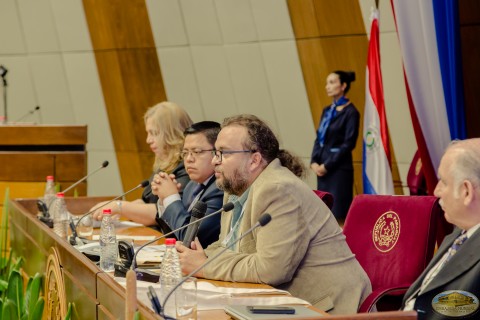
Freddy Peñafiel, vice minister of Education in Ecuador, centered his lecture on “Educational policies based on values”. With this topic, he spoke of different aspects of the Ecuadorian educational system, and also mentioned the characteristics that high school students aspire to obtain.
“A student that graduates from high school in Ecuador, has to act with justice, they must act ethically, with generosity, integrity, coherence and honesty in every aspect of their life”, he said.
Peñafiel stated that the effort that the country has made to construct this curriculum proposal based on justice, solidarity and innovation, with a methodological approach included in projects involving the preparation of educational materials, the formation of educators and family participation.
He said that “a just student is capable of understanding the potential our country has; but also all its needs; and they are capable of designing their own way of life, to make the changes the country needs, that their community needs, and that their family needs”.
A challenge: know how to be and how to live
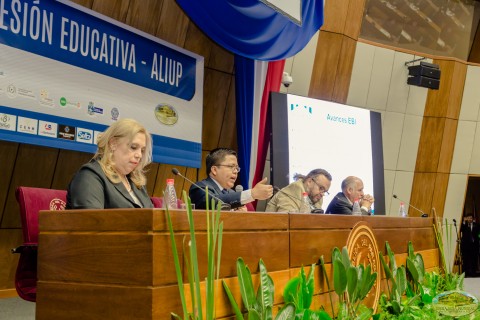
The Technical vice Minister of Education from Guatemala, Hector Canto Mejia, presented the foundation for “An intercultural educational model”. He stated that countries should consider interculturalism as a right within their educational system.
“We are looking to guarantee education as a right of the people. Considering that education is a right of the human being, see it as a focus on rights to form citizens with a cultural identity that contribute to intercultural coexistence and the development of our country”, he said.
Canto indicated that the challenge, within globalization, is the power to create an inclusive educational system, an intercultural educational system for inclusion and a culture of peace.
“To know how to coexist, to learn how to coexist, is one of the biggest challenges that our educational systems have probably left behind”, he stated.
He referred to, among other subjects, to know how to coexist with someone who thinks differently, who has a different way of life, and to know how to coexist with the environment, with natural resources.
Environmental values: behavior guides
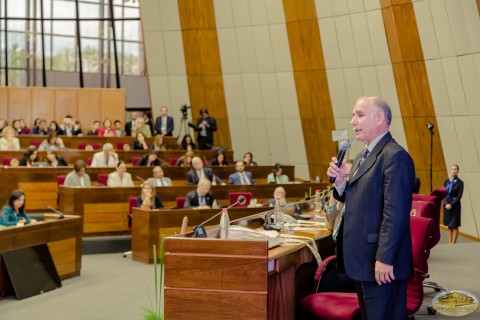
Senator Ciro Zabala Canedo, from the Social, Educational and Health Policy Commission of the Multinational Legislative Assembly in Bolivia, developed the topic: “Promoting environmental values for the harmonic coexistence of the human being with Mother Earth”.
The diplomat spoke on the necessity to implement a political constitution with an ecological awareness and respect for nature, to promote making decisions in an autonomous way, but also respecting environmental values and principles.
“Environmental values are the guidelines for how human beings should behave in their harmonious relationship with nature and Mother Earth, which is achieved after an educational awareness process”, he said.
Ciro emphasized on the importance of valuing ancestral knowledge and using scientific knowledge to end the irrational and irresponsible exploitation of Mother Earth.
Thus, he proposes the implementation of eco-schools, eco-colleges, eco-universities and eco-cities where students and citizens can actively participate in the control and care of the environment.
This first table of the Educational Session was moderated by Nancy Oilda Benitez, former director of Curriculum of the Ministry of Education of Paraguay.
